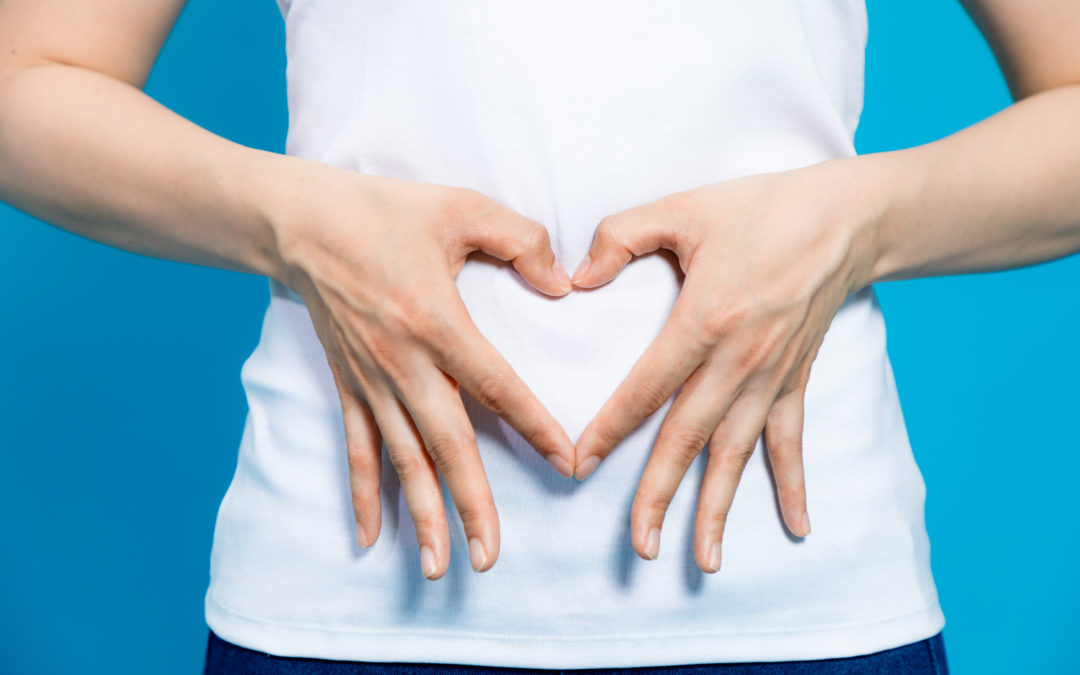Many of us celebrate the upcoming holidays with food, and shared meals are a wonderful way to improve social and emotional well-being and build a sense of community. During these celebrations, it’s not uncommon to indulge a little more than normal. Keep reading for tips on how to keep your gut healthy and happy this season!
Basic Gut Health All the organisms that live in the human body are called the human biome. It is estimated that each person has around five pounds of biome material made up of bacterial, fungi, protozoa, and viruses. Many these organisms exist within the “gut” or gastrointestinal tract. Humans have naturally occurring “good” bacteria and yeast to keep this system running well. A healthy gut can help prevent common issues such as gas, bloating, constipation and heartburn.
To maintain gut health, eat vegetables daily, especially leafy greens. The natural fiber and potassium in these foods build up good bacteria and promote continued wellness. Whole grains can also provide beneficial fiber. When eating fruit, bananas, grapefruit and oranges are ideal. (Eating too much fruit with high amounts of fructose such as apples, pears, and mangoes can cause distress.) Potassium is good for the gut and eating natural foods high in potassium such as bananas, cantaloupe, dates and avocados can help the gut stay healthy. 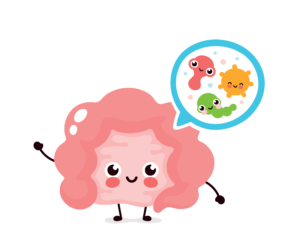 Processed foods are hard on the gut. Different preservatives and additives, such as flavor enhancers, negatively impact the good bacteria and fuel the “bad” bacteria. “Bad” bacteria occur naturally in the gut and do not help you stay healthy. Some research has shown that an imbalance of “good” and “bad” bacteria can be connected to conditions like irritable bowel disease, obesity, arthritis, cancer and depression. Because bad bacteria thrive on sugar and fat, limiting these in your diet can help you keep the “good” and “bad” bacteria in balance. When indulging in processed foods, such as game day snacks during football season, consider how you can balance them out with healthier options to start and end your day. If you’re in charge of a side dish for a meal, you can consider how to fold vegetables into your recipe.
Processed foods are hard on the gut. Different preservatives and additives, such as flavor enhancers, negatively impact the good bacteria and fuel the “bad” bacteria. “Bad” bacteria occur naturally in the gut and do not help you stay healthy. Some research has shown that an imbalance of “good” and “bad” bacteria can be connected to conditions like irritable bowel disease, obesity, arthritis, cancer and depression. Because bad bacteria thrive on sugar and fat, limiting these in your diet can help you keep the “good” and “bad” bacteria in balance. When indulging in processed foods, such as game day snacks during football season, consider how you can balance them out with healthier options to start and end your day. If you’re in charge of a side dish for a meal, you can consider how to fold vegetables into your recipe. 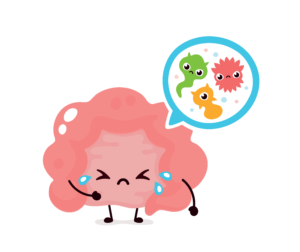 Probiotics: What’s the big deal?
Probiotics: What’s the big deal?
Have you noticed probiotics are showing up in everything? From facewash to chocolates, drinks to bars and cereals to pills – it seems probiotics are available in just about any form you can think of.
What is a probiotic? Let’s start with understanding what a probiotic is: probiotics are microorganisms (either yeast or bacteria) that are believed to positively impact your health. In stores and commercials, probiotics are marketed as a tool for helping the gut stay healthy. Typically, probiotics are targeting the microorganisms in your gut or gastrointestinal track. However, as with probiotic facewash, they can be targeting other areas of the body that have microorganisms. Probiotics can be eaten alive – think live cultures in yogurt, kimchi, and kombucha. They can also be consumed after they are killed, which is the form used when they are encapsulated.
Prebiotics are also appearing more and more in the market place and in popular health media. Prebiotics are the fuel or food that bacteria in your gut enjoy eating – often insoluble fiber. When the microorganisms in your digestive track are well fed, the theory is that they are better able to maintain a healthy population, and when the microorganisms in your gut have a healthy population, you feel better. Naturally occurring prebiotics can be found in leeks, garlic, onions, asparagus and chicory root. Synbiotics are products that include both a prebiotic and a probiotic in one formula. Synbiotics are feeding the current microorganisms and adding more microorganisms at the same time. Synbiotic products are relatively new and therefore not as common. 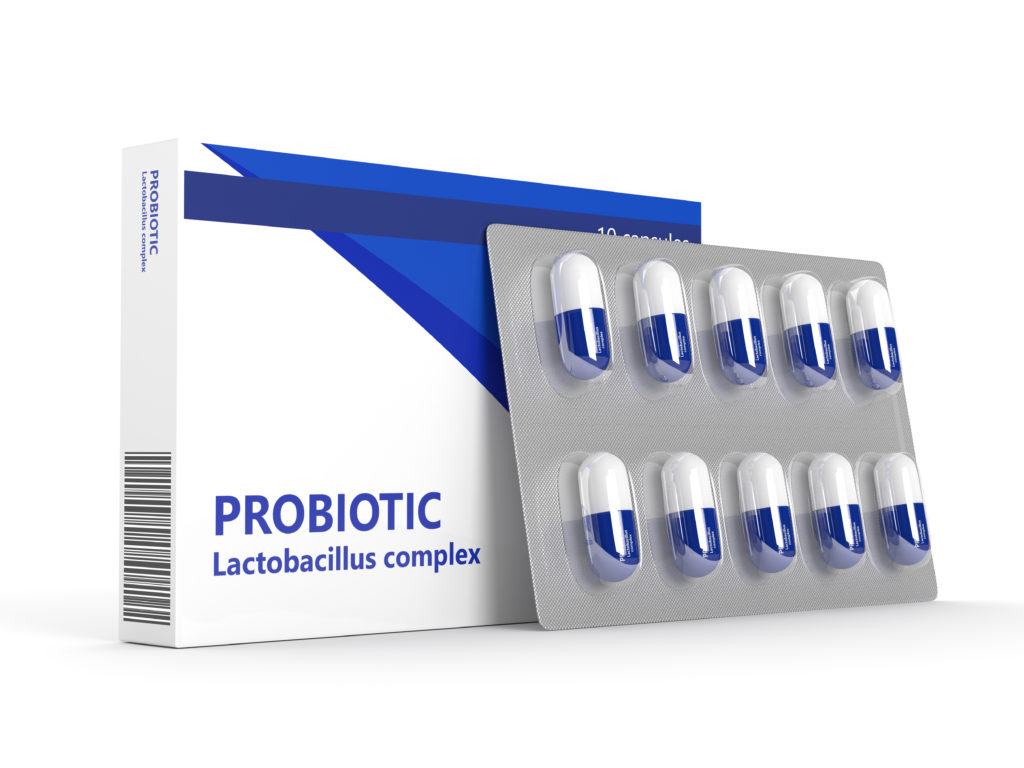 Can probiotics improve aspects of health and well-being?
Can probiotics improve aspects of health and well-being?
There is initial research indicating that the probiotics and the microorganisms in your gut influence digestion, mood, body weight and autoimmune disease.
Digestion
The research into probiotics and digestion is probably the strongest and has been on-going for the longest. However, it is still not fully understood. Understanding which strands of probiotics are helpful, which are not and how much to take is still in the early stages of research. A recent preliminary study that gave the same dose and type of probiotic to participants; it found that a dead probiotic has more impact than the live probiotic. More research is needed to fully understand if taking a probiotic will help digestion.
Mood
The connection between the gut and emotions or the brain-gut connection has not been fully explained in research. However, researchers recognize that “butterflies in the stomach” and “gut reactions” are part of the connection. How the brain and stomach are communicating is not completely understood. Because the brain and the gut are connected, researchers are curious if changes in the gut can affect mood. Though the brain-gut connection is not completely understood, there are several theories.
One theory is that the vega nerve that runs from the stomach to the brain is transmitting messages. Another theory suggests that emotional shifts are connected to the enteric nervous system (ENS), part of the gut. Studies show that irritation in the gut may send signals through the central nervous system that impact mood and may contribute to anxiety and depression. Past research led scientists to believe the opposite – that emotional shifts such as high anxiety have prompted problems in the gut such as stomach upset or bloating. There are probiotics purporting to help with mood and alleviate depression and anxiety, but they have not been rigorously studied in humans.
Body Weight
Recently a preliminary study found that certain levels of bacteria and enzymes in the gut of mice can determine how their bodies digest and use food. The research has been extrapolated and synthesized by many publications and companies selling probiotics because these same bacteria are present in the human gut. How probiotics or prebiotics could help in maintaining a healthy weight in humans is not understood yet.
Autoimmune Disease
Autoimmune diseases, such as Type I diabetes or Crohn’s disease, are impacted by the health and variety of the human biome. Current research points to autoimmune diseases being passed from parent to child through the parent’s microbiome rather than through genes or DNA. More research is needed but the questions are being asked on how to prevent autoimmune disease by changing the microbiome. Future research may explore whether a parent’s use of probiotics could impact how these diseases are passed from parent to child.
So now what?
In summary, eating probiotics, is not likely to have a negative impact on your health. However, the scientific evidence of probiotics improving health is still limited. In a booming industry that is not closely regulated, the quality, quantity and types of probiotics sold vary greatly. As research continues, it’s important to remember that making changes to your diet, such as limiting processed foods and introducing more leafy greens and other nutrient rich vegetables and fruit, can be a powerful way to keep your gut healthy.
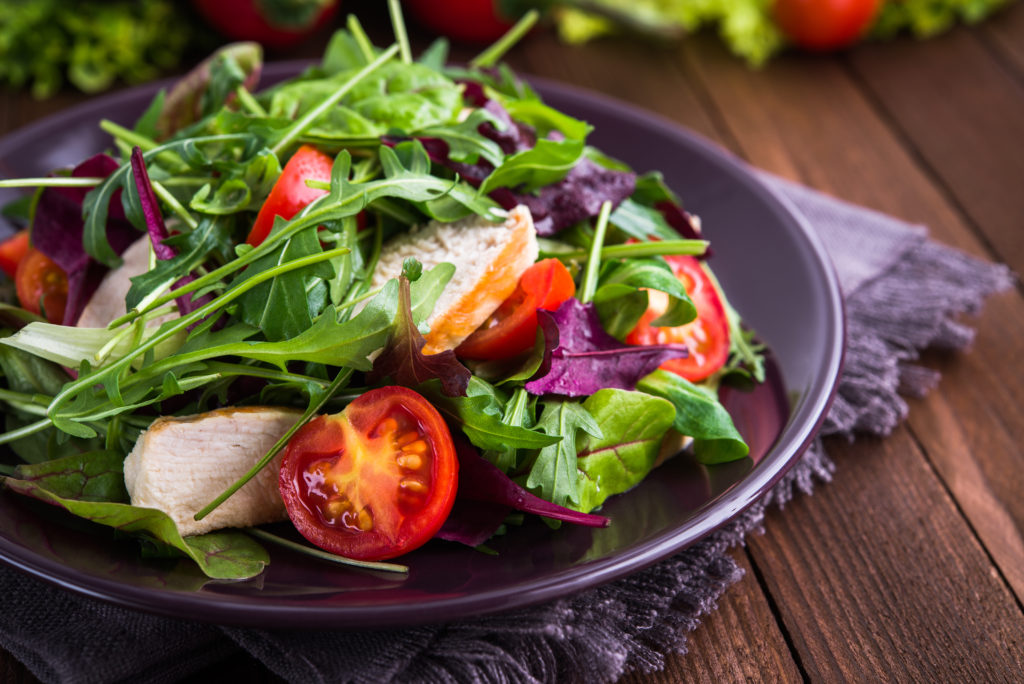 References:
References:
The Difference Between Probiotics and Prebiotics – Healthfully
The Fundamental Link Between Body Weight and Immune System – The Atlantic
The Best Probiotics – The Atlantic What You Eat Can Make You Happier – Consumer Reports
Fast Facts About the Human Microbiome – Center for Ecogenetics and Environmental Health
Gut Feelings: How Food Affects Your Mood – Harvard Health Publishing
The Brain-Gut Connection – Johns Hopkins Medicine
Your Digestive System: 5 Ways to Support Gut Health – Johns Hopkins Medicine
5 Foods to Improve Your Digestion – Johns Hopkins Medicine
For a Healthy Gut, Feed the Good Bugs – Mayo Clinic
Consumer Reports On Health: The truth About What’s Good for You, v. 31, issue 10. Pg 8. Can Food Really Boost Your Mood?

